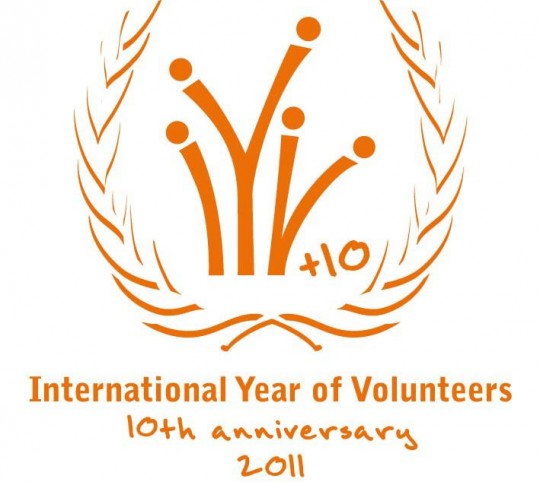UN highlights vital role played by volunteers worldwide in development
UN highlights vital role played by volunteers worldwide in development
2 December 2011
“Volunteers have the power to change lives, build social cohesion, enhance civic participation, mitigate conflict and contribute to a society’s well-being,” according to UN Volunteers (UNV), which is extending a global call to action to mark International Volunteer Day on 5 December.
“The call to action asks to recognize the contribution of millions of volunteers all over the world for peace and development,” UNV Deputy Executive Coordinator Naheed Haque told UN Radio. “It asks to form a world volunteer coalition and also it asks world governments, civil society and UN agencies to incorporate volunteerism into development planning and implementation.”
As part of the celebrations for the Day, UNV will organize a series of events to showcase volunteers’ work. One of these events, Light-up the World, will involve various online activities, including a photo competition where volunteers are asked to submit images from around the world depicting their views and experiences. The winner will be chosen through votes on UNV’s Facebook page.
In addition, UNV will release the first-ever state of the world volunteerism report. “The report talks about a new development paradigm,” said Ms. Haque, adding that it underlines the role of social capital and well-being instead of traditional development measurements such as gross domestic product (GDP).
There are currently some 8,000 UN volunteers working in peacekeeping missions, UN agencies and partners, who are helping developing countries achieve the Millennium Development Goals (MDGs), which aim to eradicate extreme poverty and hunger, achieve universal primary education, promote gender equality, combat HIV/AIDS, tuberculosis and malaria and improve women and children’s health, all by 2015.
In her interview, Ms. Haque, who was recently on a visit to the Middle East, stressed the importance of volunteer work in this region, particularly at a time of significant socio-political changes. “UN volunteers are working with Arab youth, helping them achieve transformational change in their communities.” she said.
Ms. Haque also emphasized that one of the biggest challenges is to give the appropriate recognition to volunteers and assign them tasks that highlight their skills and potential.
“We’re trying to develop their assignments in a way that calls to the core values of volunteerism, which is engaging people in development, social mobilization, impacting development at a local level – these are things volunteers do best,” she said.
###
> United Nations (UN).
 The United Nations was established on 24 October 1945 by 51 countries committed to preserving peace through international cooperation and collective security. Today, nearly every nation in the world belongs to the UN: membership totals 192 countries.
The United Nations was established on 24 October 1945 by 51 countries committed to preserving peace through international cooperation and collective security. Today, nearly every nation in the world belongs to the UN: membership totals 192 countries.
When States become Members of the United Nations, they agree to accept the obligations of the UN Charter, an international treaty that sets out basic principles of international relations. According to the Charter, the UN has four purposes:
- to maintain international peace and security;
- to develop friendly relations among nations;
- to cooperate in solving international problems and in promoting respect for human rights;
- and to be a centre for harmonizing the actions of nations.
###
* The above story is adapted from materials provided by United Nations (UN)
** More information at United Nations (UN)





















